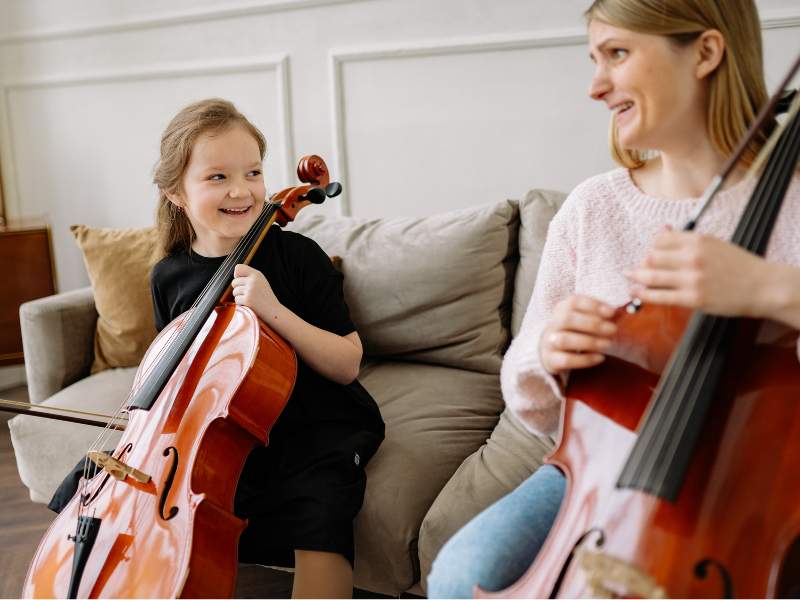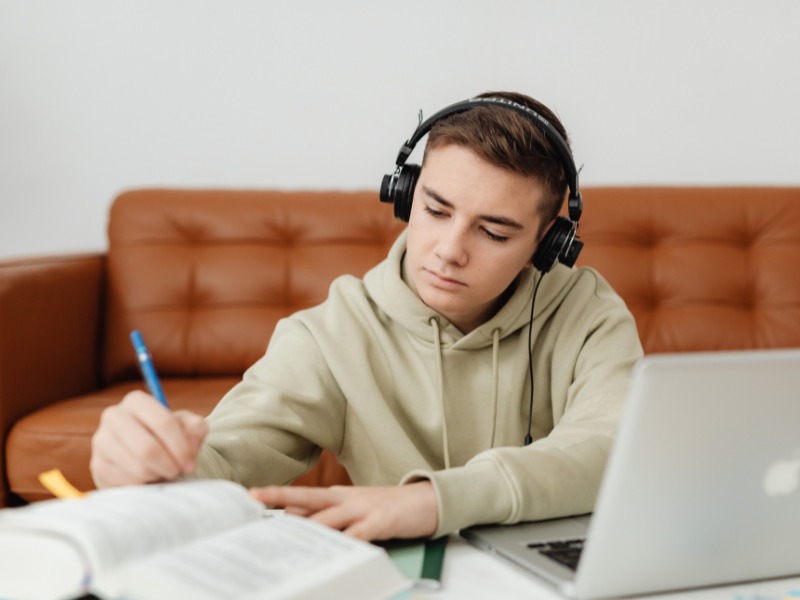Brains work in sync during music therapy

Imagine a music therapist and their patient wearing EEG caps. Imagine them working together and coming to a moment when the therapy was “working”. Imagine seeing the EEG signal suddenly change for the patient, and then seeing the same change in the therapist just afterwards. Imagine both the patient and therapist identifying afterwards that this was the moment when the therapy was working.
“Music therapists work towards “moments of change,” where they make a meaningful connection with their patient. At one point during this study, the patient’s brain activity shifted suddenly from displaying deep negative feelings to a positive peak. Moments later, as the therapist realised the session was working, her scan displayed similar results. In subsequent interviews, both identified that as a moment when they felt the therapy was really working.”
Now imagine if we could watch the same moment happen between a music teacher and their student? Have you ever felt that moment as a student or a teacher? Within the BBB team we have felt it often and we can remember every single time it happened. We are wondering if it is the same or similar to the therapy moment of change? What an interesting study that would be!
What if you could advocate for music education without adding more work to your already packed schedule?
Engaging in musical activities offers profound benefits for our brains, enhancing various cognitive functions and emotional well-being.
While there can only be one winner of the BBB Music Teacher Award, we also recognize the outstanding efforts of our 2025 Runner-Up, Ruby Mensforth—a teacher whose dedication to fostering a love of music has left a lasting impact on her students.
Playing an instrument or singing in a choir isn’t just fun—it’s great for brain health too. A recent study found that people with musical experience have stronger memory and thinking skills than those without.
For many music teachers, March means concert season, assessment planning, and advocating for the importance of music education as budgets and schedules for next year take shape.
We know that speaking up for music in schools can feel overwhelming—but you don’t have to do it alone.
If you've ever conducted or played in an ensemble, you’ve likely felt it—that moment when everything clicks, the music soars, and your group performs at a level beyond anything you thought possible.
The World Economic Forum's Future of Jobs Report 2025 highlights the critical skills that will define the workforce of tomorrow.
A recent study in Ear and Hearing investigated how aging and hearing loss influence music perception, focusing on melody and timbre discrimination.
A new study in the Journal of Neuroscience reveals that our brains start processing rhythm as early as 27 weeks into pregnancy.
The 2025 Celebrate to Advocate Calendar is your go-to guide for making advocacy effortless this year!
A recent study from Waseda University has uncovered that when individuals listen to music, their heart rates synchronize, reflecting a unified physiological response.
A groundbreaking study in Nature Human Behaviour has revealed a fascinating genetic connection between musical rhythm skills and language-related traits, including dyslexia.
Recent research from the Georgia Institute of Technology has unveiled compelling insights into how music affects learning, memory, and emotions.
A recent study from Aarhus University reveals that while older adults can remember familiar music as well as younger individuals, their brains engage differently during the process.
Take our free, 60 second quiz and maximize your advocacy impact by discovering your advocacy style and knowledge gaps.
Thank you for a wonderful 2024! Here’s a little gift from BBBB to you.
Music has always been a go-to for lifting our spirits, but did you know classical music might take it a step further by actually helping treat depression?
Founder of Bigger Better Brains, Dr Anita Collins, receives hundreds of emails from students around the world asking questions about neuromusical research. So she decided to record a short video about the most asked questions she has received.



















